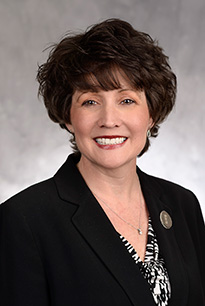Investing in UWP Builds Talent for the Region
The following commentary from Chancellor Debbie Ford appeared recently in media throughout southeastern Wisconsin.
Saturday, the University of Wisconsin-Parkside celebrates the most students ready to graduate in our history. Close to 500 men and women are eligible to participate in our spring commencement. In the past five years, we have awarded more undergraduate and graduate degrees than during any other five-year period.
When you consider that the majority of Parkside students are from right here in southeastern Wisconsin and the majority of our graduates stay right here in southeastern Wisconsin, these new levels of student success are key to sustaining real growth in our region.
Recently, a supporter of our university shared a conversation he had with the president of a company that has moved to our community. One reason for the move, the president said, was higher education: UW-Parkside, Gateway Technical College, and Carthage College. Together, these three institutions provide the assurance that his company will have the talent needed for future success.
Developing talent for this region is vital to sustaining our momentum. However, actions by the state Legislature over the next few weeks may hinder our ability to provide affordable, quality higher education. The Joint Finance Committee is deliberating Gov. Scott Walker's proposed 2015-2017 state budget. Included in Gov. Walker's budget proposal is a $300 million cut to the UW System that would drive state support for public higher education back down to the amount invested nearly two decades ago in 1998. In addition to what may be an unprecedented reduction, UW-Parkside has already absorbed more than $5 million in state cuts over the past five years.
Clearly this has severe implications on our ability to retain top talent, provide the best education, and advance our learning community to meet the talent needs of the 21st century.
The model of funding public higher education is not what it used to be. In 1998, the state supported 60 percent of the cost of educating UW students. Today, state support is less than 30 percent of that cost. UW-Parkside tuition remains the most affordable of all four-year campuses in the UW System. However, sustaining a commitment of access to quality higher education, while maintaining affordability, will require a realistic and predictable investment from the state of Wisconsin.
Parkside Momentum
Many of you are aware of the positive momentum on campus. In addition to the highest number of students eligible to graduate, our College of Business, Economics and Computing recently launched the App Factory. One of the first projects was a mobile app for Kenosha Area Transit. In addition to helping KAT riders know when the next bus will arrive, the app has helped reduce the number of calls KAT staff members handle each week to answer the question "when does the next bus arrive?"
In addition to innovation, local employers are also looking for sales talent. National statistics show that a majority of business and marketing graduates will be in a sales-related position at some point in their careers. Again this year, members of our competitive sales teams brought home championship honors from a national event in Georgia. Our retail-management and sales certificate programs are two of the most popular ways business students add value to their education and increase their marketability.
In the College of Natural and Health Sciences, the placement rate for our pre-med students into medical school continues to be near 90 percent – more than double the national average. Among this year's graduates are members of the first group of UW-Parkside pre-med students in the UW School of Medicine and Public Health RUSCH program. RUSCH (Rural and Urban Scholars in Community Health) helps prepare doctors who are dedicated to establishing a practice in under-served rural and urban areas of Wisconsin.
These are just a few examples of why I am so proud of how Parkside is creating the talent that will help build the 21st century here in southeastern Wisconsin. My further hope is that I have made a compelling case for the value of UW-Parkside and that anyone reading this will understand why reducing state support for the UW System means reducing state support for our future.
